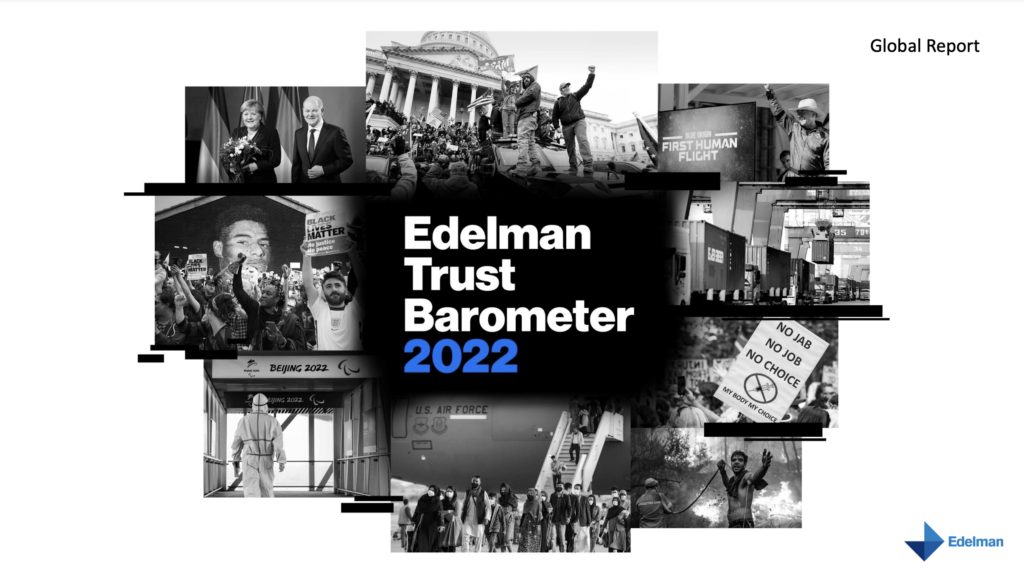Causes & Campaigns
Introducing the Issue
Nowadays, businesses are increasingly called upon to wield their voice and influence in support of social issues and causes. Employees, customers and indeed potentially all stakeholder groups hold concerns that affect them, their friends and families, and society at large. They expect the businesses they buy from, work for, and invest in to care too, and support their causes where appropriate.
If and how does your company support Causes & Campaigns?
What causes and campaigns is your business concerned about, and why? Do you have policies or practices developed as to which causes to support and which not to? Perhaps this isn’t an issue that you need to worry about right now? We’ve developed benchmarks that attempt to define Poor, Okay, Good and Excellent company performance standards on causes and campaigns.
You are invited to assess your business against these benchmarks, for free and without obligation.
Causes & Campaigns
Follow this link to:
1 – choose your score
2 – add a few lines by way of explanation to describe your policies and practices
3 – enter your email address so that we can get back to you
4 – submit
Nothing you submit will be published or shared.
Exploring the Issue
In an era marked by a decline in trust in political institutions, the role of businesses is evolving. Beyond their traditional focus on profit, they are increasingly expected to use their voice and influence to campaign on social issues and causes. This entails taking a credible stand on matters that impact society today, such as the right to protest, LGBTQ+ rights, abortion rights, climate action, and more.
Engaging with causes and campaigns has become a fundamental aspect of corporate responsibility. It involves a commitment to ethical practices, environmental sustainability, and social impact. Importantly, it requires businesses to align their strategies with causes that matter to stakeholders. Moreover, there can be dangers associated with appearing to remain oblivious or unconcerned as to current events and how your business may relate to ongoing ethical and political disputes. While you won’t need to involve yourself in every cause, there are increasing risks associated with failure to consider the position your organisation might take.
Businesses have the power to support the causes that matter to them, their employees, and their customers through their operational decisions. While involvement may not always be the best course of action for every business, remaining aware of how business actions can inadvertently affect social and political issues is not just wise but increasingly necessary. By doing so, you can not only support the causes you care about but also bolster the welfare of your business.
Examples of Causes and Campaigns
Abortion Rights Movement: The Abortion Rights Movement, or the pro-choice movement, advocates for legal access to induced abortion services including elective abortion. It seeks to represent and support women who wish to terminate their pregnancy at any point. This movement attempts to establish a right for women to make the choice to have an abortion without fear of legal and/or social backlash.
Black Lives Matter Movement (BLM): An international social movement, formed in the United States in 2013, dedicated to fighting racism and anti-Black violence, especially in the form of police brutality.
Climate Activism: A global social movement focused on pressuring governments and industry to take action addressing the causes and impacts of climate change.
LGBTQ+ Rights Movement: A movement to ensure that lesbian, gay, bisexual, transgender and queer people can live openly without discrimination and enjoy equal rights, personal autonomy, and freedom of expression and association.
Right to Protest: May be a manifestation of the right to freedom of assembly, the right to freedom of association, and the right to freedom of speech.
Definitions
An Ad Hoc Response is a response formed or used for specific or immediate problems or needs.
A Campaign is a planned group of especially political, business, or military activities that are intended to achieve a particular aim.
A Cause is a principle, aim, or movement that, because of a deep commitment, one is prepared to defend or advocate.
A Community is a group formed when geographical location, culture, ethnicity, religion, causes, life circumstances and/or simply personal interests are shared between members.
The Edelman Trust Barometer is a 20 year study on the influence of trust across society — government, media, business, and NGOs — to shape conversation, drive results and earn action.
Greenwashing is Disinformation disseminated by an organisation so as to present an environmentally responsible public image.
Virtue Signaling is the sharing of one’s point of view on a social or political issue, often on social media, in order to garner praise or acknowledgment of one’s righteousness from others who share that point of view, or to passively rebuke those who do not.
Articles & Resources

Why More Companies Are Standing Up On Social Issues
Knowledge At Wharton
Causes and Campaigns are so closely interwoven in to everyday life and it has become increasingly more difficult to stay silent on issues that impact so many people. With that businesses are starting to speak out more frequently on the issues that impact the lives of their employees and stakeholders.

3 Ways Your Small Business Can Make A Big Difference
Thrive Global
There are multiple ways small businesses can give back. This article gives three ways that your company can make a difference no matter the size. 1. Work towards fair wages; 2. Source materials responsibly; 3. Weave your social mission into your story. Following some of these tips can help maximise your efforts.

2022 Edelman Trust Barometer
The results from the Edelman Trust Barometer in 2022 revealed that people list business as the most trusted institution as faith in media and government declines. See their findings here.
